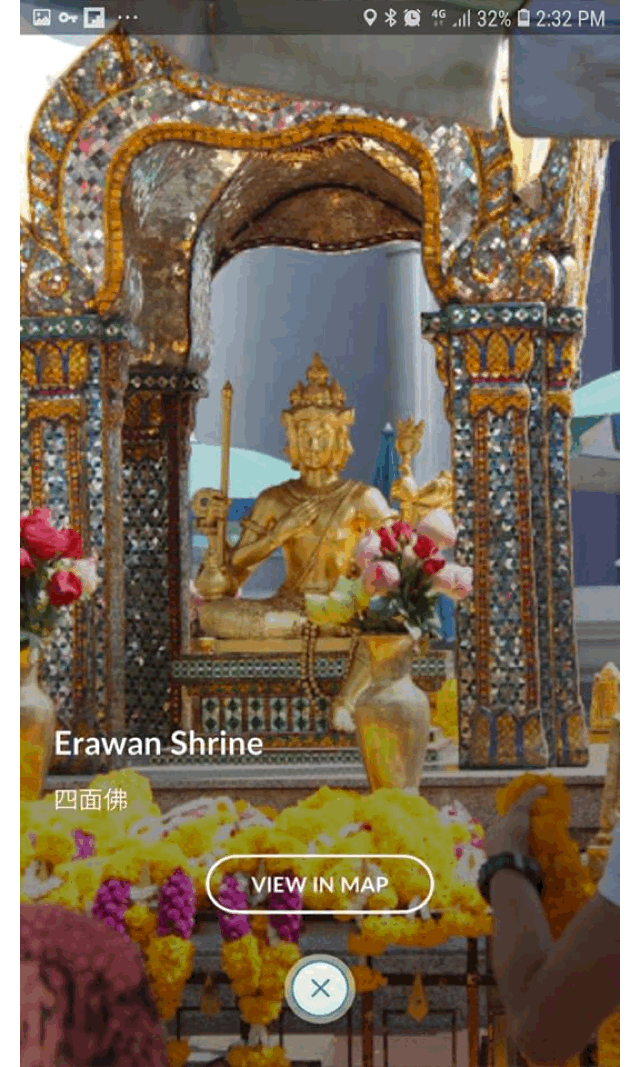Bats Eat Bananas: Traditional Thai Music
 The Pokemon Go Berries are items that helped trainers to catch the monster easier and increase Gym Defenders’ motivation. First, only the grape-like Razz Berries were available. Then came the Golden Razz Berries, which were more effective, as rewards from Gym Raids. The banana-like Nanab Berries slowed down the movement of wild monsters while the pineapple-like Pinap Berry doubled the rewarding candies.
The Pokemon Go Berries are items that helped trainers to catch the monster easier and increase Gym Defenders’ motivation. First, only the grape-like Razz Berries were available. Then came the Golden Razz Berries, which were more effective, as rewards from Gym Raids. The banana-like Nanab Berries slowed down the movement of wild monsters while the pineapple-like Pinap Berry doubled the rewarding candies. All Thai trainers I met called these berries as berries, golden berries, banana (กล้วย, kluay) and pineapple (สัปปะรด, sap-pa-rod), respectively. Interestingly, none called the Razz Berries grapes (องุ่น, a-ngun), maybe because the pronunciation required more effort.
Anyway, the introduction of the Nanab Berries really helped the catching of fast-moving Pokemon, particularly the Zubats which flapped wings so fast that I sometimes got dizzy from just staring. The act of feeding bananas to bats had very much amused me because of the name.
There are two Thai classical tunes that bear the name of 'Bats Eat Bananas' (ค้างคาวกินกล้วย, khang khow kin kluay). The original one is less famous than the other which was also known as 'Monkey and Tiger' (ลิงกับเสือ, ling kab sua). Both tunes expressed the joy of nature and were frequently performed together back to back. As the 'Monkey and Tiger' was more lively, it caught audiences' ears and became known by the name 'Bats Eat Bananas' as well.
Here is the more famous 'Bat Eats Bananas', also known as 'Monkey and Tiger', by the Bangkok Symphony Orchestra. Do you like it?
External Links:
- Comparing 'Bats Eat Bananas' and 'Monkey and Tiger' by Theppitak Karoonboonyanan, 10 July 2013.
The 'Bat Eats Bananas' was also adopted into rock music by the band Carabao. It was issued in the 1995 album 'Giving out Banana' (แจกกล้วย, jaek kluay). The lyric was about the plight of rice farmers and compared the bats to the crooks who leached off them.
The lyric was translated roughly as "Farmers hoped for a good harvest and some profits. Most had to held stock with (rely on angles for rain. Birds with ears and rats with wings [a Thai phase for bats] came out of the blue and cheated without issuing receipts. There was hope this year with rain and good crops. But bats came and ate all ripe bananas. Bats stole bananas like the crook cheated framers. Don't you know that farmers' lives were difficult? There were bats in the sky and rats in the field, eating crops. Bats flew away after they were full, leaving farmers to face the hardship."
The Carabao was arguably THE Thai rock band. It was formed in 1981 by Yuenyong Opakul and Kirati Promsaka Na Sakon Nakhon while studied at Mapúa Institute of Technology in the Philippines. The Tagalog language Carabao meant Buffalo which denoted the hard-working and endurance as well as laborers.
Most of their songs were of the 'for life' genres which started as the protest songs in the political upheaval of the 1970s. Carabao blended this acoustic/folk style with Thai and world music; lyrics often tackle social and political issues, highlighting struggles and demanding justice for honest poor.
The band issued several albums. In the dabbed classic period between 1984-1988, the annual issues were 'Made in Thailand', 'Americoay' (Greedy American, protesting the US-Thailand trade dispute on textile and rice), 'Democracy', 'Welcome to Thailand' and 'Lintel' (protesting for the return of stolen Narai Bantomsin lintel from the Art Institute of Chicago). Yuenyong Opakul went on to become a National Artist in Performing Art (Composer/Singer) in 2013.
The buffalo skull logo was very recognizable, first for the band and now for the Red Carabao energy drink. The German Tawandang Brewery and Yuenyong Opakul found the Carabao Tawandang Co. Ltd. which launched the drink in 2002. The earliest ads prominently featured the band which just then issued the album Great Fighter.
The May 2017 issue of Forbes Thailand reported that the Carabao energy drink was the second in Thailand by market share, following the leader M-150 but ahead of the Red Bull. The rocker Yuenyong Opakul graced the cover and was billed as the richest musician in Thailand. What a contradiction with the song lyrics!
External Links:
- Carabao Band Official Website
- The Energy Drink War in Forbes Thailand, April 2017.
Listed in the Being Thai page.


Comments
Post a Comment